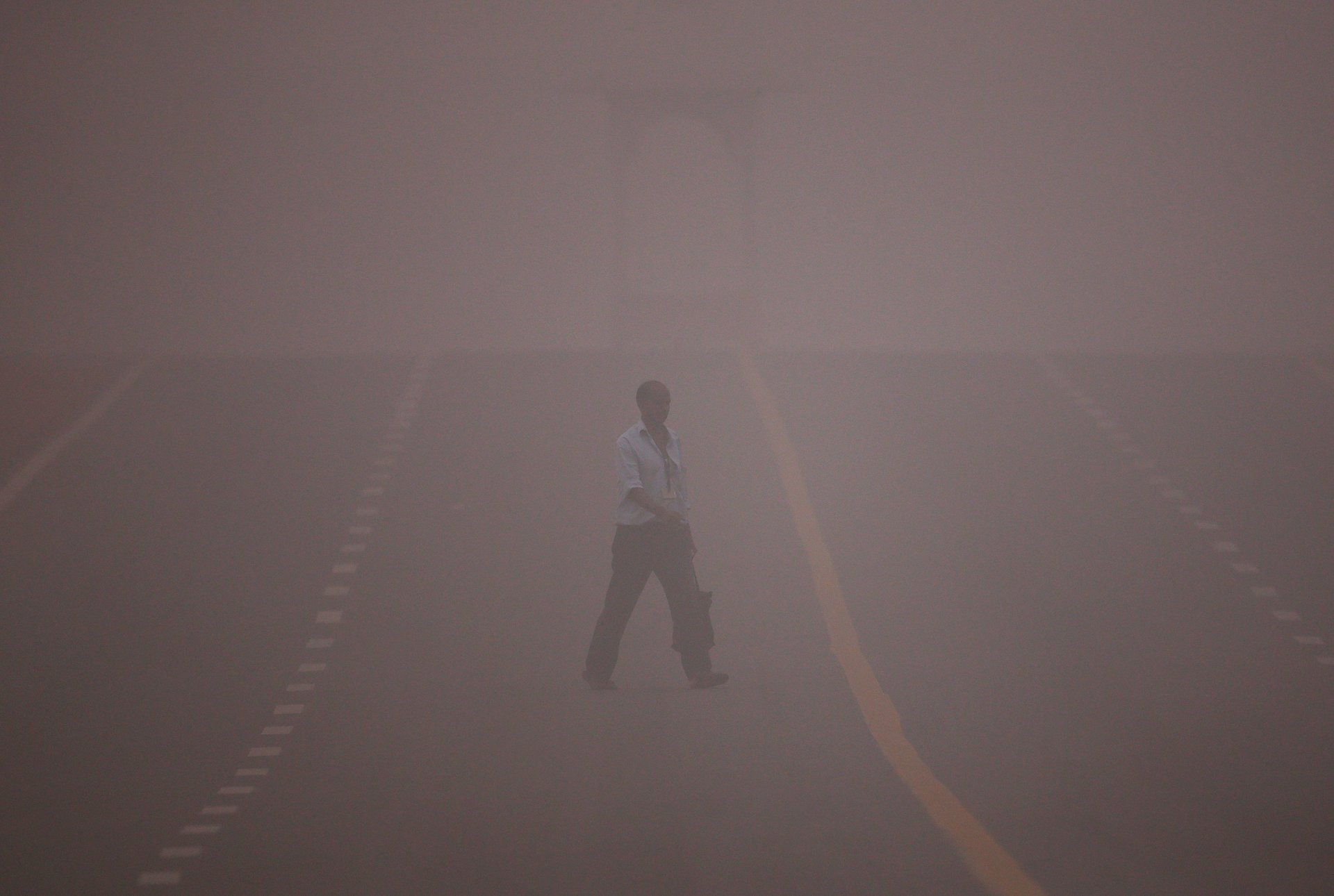Will paying farmers help Delhi breathe easy?
Payments for Ecosystem Services will reward farmers in Punjab and Haryana for not burning crop residue

The annual winter spike in pollution in Delhi and its neighborhood can be reduced if farmers of nearby states are paid to desist from burning farm stubble, a new study suggests.
“An upfront payment can send a costly signal, increasing trust [between farmers and the authorities] that the subsequent conditional payment will occur,” said the study (pdf) by National Bureau of Economic Research (NBER), a US-based non-profit.
Such an arrangement with farmers is termed “Payments for Ecosystem Services” (PES). The idea was popularised by a 2005 UN report that listed 24 “ecosystem services” that help improve the natural environment.
PES contracts “can also alleviate liquidity constraints when farmers need to spend money on alternatives to burning,” the NBER study said.
The main beneficiaries would be the farmers of Punjab, Haryana, and Uttar Pradesh, who practice stubble-burning during December and January. The problem is exacerbated by cooler and lower winds in this period, choking Delhi and its neighborhood every year.
Money is the solution—and the problem
Regular PES payments aside, advance payments could also help build trust between farmers and authorities, the NBER study has suggested. These, in turn, will also help with regular cash flows for the poor, it noted.
This, however, is easier said than done. For instance, the governments of both Punjab and Delhi had such plans earlier but later dropped them due to a severe cash crunch.
“How can we pay when the center is not giving?” Punjab’s agriculture minister Kuldeep Singh Dhaliwal had asked in September.
Delhi’s poor air quality
Delhi’s air quality remains poor despite millions of rupees spent by authorities to tackle the problem.
The Delhi government yesterday (Nov. 5) banned petrol four-wheelers with BS-III emission standards and diesel vehicles with BS-IV standards in the city and the national capital region (NCR) till Dec. 9. Last month, it suspended most construction and mining activities.
These steps followed emergency measures of the government’s Graded Response Action Plan (GRAP) which kicks in when pollution turns severe. Under this, Delhi’s air quality is classified into four readings of the air quality index (AQI).
Delhi’s AQI at 10.30 am today was “poor.”
